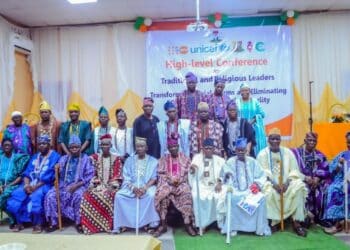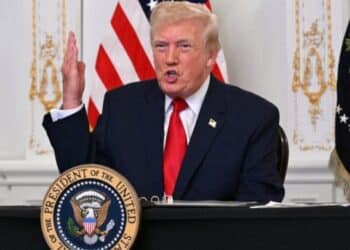The Federal Executive Council (FEC) on Monday discussed the impact of US President Donald Trump’s policies on healthcare in Nigeria and how to ensure that Nigerians do not suffer from such.
Reports show how a rash of foreign policies by the Trump administration could affect healthcare in Nigeria in areas like tackling HIV and vaccination.
On Monday, the FEC, presided over by President Bola Tinubu, discussed the impact of the Trump policies, particularly regarding HIV, tuberculosis, and malaria funding, according to a statement by the president’s office.
The meeting then set up a multi-ministerial committee that would include representatives from the Ministries of Finance, Health, Defense, and Environment, as well as the Governors’ Forum.
The committee was tasked with developing a transition and sustainability plan to mitigate potential funding disruptions of the health programmes in Nigeria.
This administration is committed to ensuring that those receiving treatment do not experience interruptions,” Health Minister Muhammad Pate told journalists after the meeting.
“We appreciate the US government’s contributions over the years and remain committed to a constructive partnership while strengthening Nigeria’s healthcare system with domestic resources.”
Nigeria’s intervention
The FEC also approved a N4.8 billion emergency fund to procure 150,000 HIV treatment packs.
According to Mr Pate, the funding, which is part of the Presidential Treatment Programme, aims to ensure uninterrupted care for People Living with HIV (PLHIV) in Nigeria while the government strategises on long-term sustainability.
He emphasised that this decision reinforces Nigeria’s commitment to reducing dependence on foreign aid for critical health interventions.
“This is an important signal that the federal government is committed to ensuring that life-saving treatments remain accessible, despite the changing dynamics in external support,” Mr Pate said.
Meanwhile, National Agency for the Control of AIDS (NACA) recently pledged to intensify domestic resource mobilisation strategies to ensure ownership and sustainability of the country’s HIV/AIDS response.
In addition to the HIV treatment programme, the FEC has also approved a substantial investment in the country’s healthcare system through the Human Capital Opportunities for Prosperity and Equity (HOPE) programme.
Nigeria has been one of the biggest beneficiaries of the US President’s Emergency Plan for AIDS Relief (PEPFAR), which funds HIV treatment for millions globally.
Trump’s Health Policies and Executive Order
However, President Donald Trump’s executive order on foreign aid recently led to the suspension of PEPFAR’s funding, causing uncertainty in HIV treatment programmes across Nigeria and other low-income countries.
Although the US Secretary of State Marco Rubio later approved an emergency humanitarian waiver to allow PEPFAR to continue providing HIV medication, the Nigerian government is taking proactive steps to ensure treatment continues.










